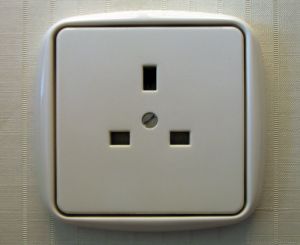

EARLIER this month we wrote a couple of articles about design patents [1, 2]. Any design can already be covered using trademarks and copyrights, so patents are a misfit. The US Supreme Court might actually put an end to these.
"Any design can already be covered using trademarks and copyrights, so patents are a misfit. The US Supreme Court might actually put an end to these."Right now the high-profile case/s involving design patents would be Apple/Samsung. It's everywhere in the media. CCIA wrote about that yesterday, challenging the extraordinary 'damages' claimed by nonsensical things such as 'rounded corners'. From the conclusion:
The test proposed by the Solicitor General, as adapted by Judge Koh, just isn’t workable in practice. While it’s better than Apple’s test, which would have included the intent of the defendant as a factor (potentially resulting in different articles of manufacture for the same exact product depending on the defendant’s state of mind, an even worse problem than the defendant’s business practices), the Solicitor General’s test doesn’t provide sufficient ability to ascertain the correct article of manufacture from the face of the patent, relying instead on the defendant’s product and business practices.
The best solution would be to simply eliminate €§ 289, the statute that provides a special “total profits” remedy for infringement of design patents. The special rule €§ 289 represents was created when the most common remedy for infringement was a share of the infringer’s profits. These days, when the typical damages remedy for patent infringement is a reasonable royalty, there’s simply no need for €§ 289.
"Judge Koh has been dealing with these cases for a long time. She has a lot of power in her hands."Curiously enough, yesterday an article was published regarding the Singaporean High Court dealing with questionable patents. Like the US Supreme Court, it probably ought to get rid of design patents (or guide future judgment of existing ones towards that), but in reality it seems to have put patents before human rights and whatever lawyers demand. Not reasonable.
Here is the summary:
A recent ruling made clear that Singapore’s High Court does not have original jurisdiction to hear patent revocation proceedings even if they are brought by a counterclaim in infringement proceedings. If the ruling stands, it would mean all revocation cases will have to be started at IPOS
"The US has, belatedly and contrariwise, gone in the opposite direction, recognising that it needs to work for scientists and technologies, not lawyers and prosecutors."As we argued on several occasions earlier this year, IPOS and Singapore in general (their effectively one-party state) have been trying to embolden patent aggressors rather than foster innovation. It's the same in China. The US has, belatedly and contrariwise, gone in the opposite direction, recognising that it needs to work for scientists and technologies, not lawyers and prosecutors. ⬆